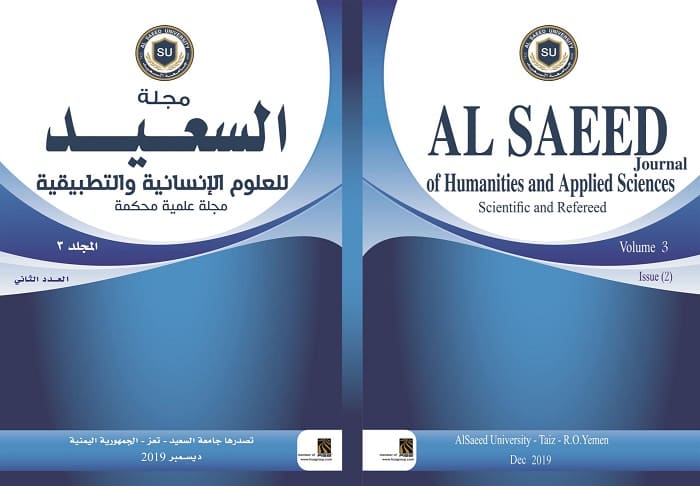Professional development and its role in achieving the organizational effectiveness of Taiz University "Department of Academic Performance Evaluation and Quality Assurance - A Model": A Study in the Sociology of Organization and Work
DOI:
https://doi.org/10.59325/sjhas.v3i2.63Keywords:
Professional Development, Total Quality Management, Efficiency, Organizational Effectiveness, Teaching Performance, Professional Standards, Higher Education , TrainingAbstract
The Study aimed to identify the role of department calendar performance academic and ensure the quality at Taiz University in professional development and its impact on achieving the organizational effectiveess in accordance with the quality specifications, the quality of the training mechanisms of the faculty member, and the level of access to training and rehabilitation courses. Also, it aimed to improve the efficiency in upgrading the educational process and its institution.The Study was based on a descriptive analytical method. The questionnaire was distributed to a sample of faculty members of 121 different colleges. It concluded that quality management depends on modern mechanisms in professional development. They impact effectively in increasing the level of education and scientific research for faculty members in various faculties. The department calendar performance academic keeps pace with the development of quality and academic accreditation. It seeks to implement them, and this impacts in increasing the organizational effectiveness.
Downloads
Published
How to Cite
Issue
Section
License
copyright is retained by the authors. Articles are licensed under an open access Creative Commons CC BY 4.0 license, meaning that anyone may download and read the paper for free. In addition, the article may be reused and quoted provided that the original published version is cited. These conditions allow for maximum use and exposure of the work.



